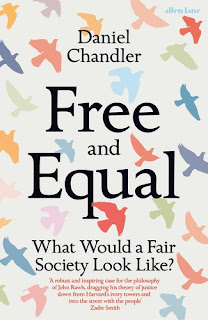A Critical Theory of Global Justice.The Frankfurt School and World Society
by Malte Frøslee Ibsen
(Oxford University Press, 2023)
384 pages
Description
The idea of a critical theory is famous across the world, yet it is today rarely practised as originally conceived by the Frankfurt School. The waning influence of critical theory in the contemporary academy may be due to its lack of engagement with global problems and the postcolonial condition. This book offers the first systematic treatment of the idea of a critical theory of world society, advancing the conversation between critical theory and postcolonial and ecological thought. Malte Frøslee Ibsen develops a reconstruction of the Frankfurt School tradition as four paradigms of critical theory, in original interpretations of the work of Max Horkheimer, Theodor W. Adorno, Jürgen Habermas, and Axel Honneth, and considers how the global context has featured in their work and what might be salvaged for a critical theory of contemporary world society. Along the way, Ibsen advances new interpretations of the relationship between critical theory and justice, the idea of communicative freedom, and three conceptions of power in the Frankfurt School tradition. He further offers extended discussions of two emerging paradigms in the work of Amy Allen and Rainer Forst and argues that a critical theory of world society must combine and integrate a Kantian constructivist approach in a critique of global injustice, as Forst defends, with the reflexive check of a self-problematizing critique of its blind spots and taken-for-granted assumptions regarding the postcolonial condition, as defended by Allen. Finally, Ibsen rethinks the relationship between society and nature in critical theory, with far-reaching normative and methodological implications.
Contents [Preview]
Introduction
Part I: Horkheimer
1. Max Horkheimer and the Original Paradigm of Critical Theory
2. Horkheimer's Original Paradigm and the Idea of a Critical Theory of World Society
Part II: Adorno
3. Theodor W. Adorno and the Negativist Paradigm of Critical Theory
4. Adorno's Negativist Paradigm and the Idea of a Critical Theory of World Society
Part III: Habermas
5. Jürgen Habermas and the Communicative Paradigm of Critical Theory
6. Habermas's Communicative Paradigm and the Idea of a Critical Theory of World Society
Part IV: Honneth
7. Axel Honneth and the Recognition Paradigm of Critical Theory
8. Honneth's Recognition Paradigm and the Idea of a Critical Theory of World Society
Part V: Allen and Forst
9. Amy Allen's Contextualist Paradigm of Critical Theory
10. Rainer Forst's Justification Paradigm of Critical Theory
Conclusion
Review:
"In this excellent book, Ibsen offers a critical reconstruction of the Frankfurt School tradition that is alert to its Eurocentric blindspots and aims to articulate the theoretical basis of a critical theory of global justice that is adequate to contemporary world society. Intellectually rich, philosophical acute and lucidly written, this is a work that should be read by all of those engaged with critical theory broadly conceived, whether within the Frankfurt School tradition or outside of it." - David Owen, Professor of Social and Political Philosophy, University of Southampton.


